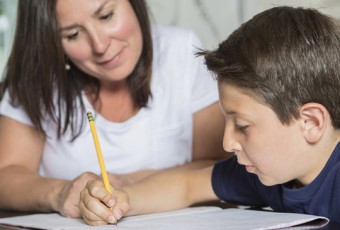As we launch into the new school year, we are all hustling back into a routine that we can thankfully predict with greater ease. After a bustling summer of long fun-filled days, it’s time to get back to education, lunches, arranging pickups for our children, and dealing with unexpected illness. The big questions are how do we minimize the risk of our children getting sick and what can we do to make sure they stay healthy, focused, and energetic? How do we create successful, happier, and thriving children?
Well, as I’m sure you already know, there are a few basic principles that help keep children healthy so that they minimize their absence from school and optimize their performance while in school. I’d like to share with you some key basic principles that will help your children be the best they can be and make life more harmonious in the home. Warning – not all of these suggestions are popular, however, they do create desired results. After all, I truly believe that most parents want the best for their children, but struggle with what to do. I know I’ve experienced this challenge. The answers, as it turns out, are not so difficult. The following are the top eight things to do to keep your kids thriving in school instead of home on a couch.
- Drink plenty of water and avoid juices, pops, and sugary drinks. Water is really the drink of choice for champions. Most people, especially adults, are walking around dehydrated. Water is the fuel to make the mind and body function at its best.
- Make sure everyone gets at least 8-12 hours of sleep on average (see chart at right).
- Wear a helmet when biking, skateboarding, or playing contact sports. (Ask any doctor and he or she will tell you that concussions will change a family’s dynamic and can set back a child’s physical and mental performance, not to mention their school attendance.) Thankfully most people have adopted this practice.
- Eat vegetables and fruits. They can be tasty. Keep them visible on the table or counter so they are easy to remember and access.
- Spend at least one hour outside in the fresh air daily. We weren’t meant to breathe housebound air. We can live four days without water, but only four minutes without oxygen.
- Kids and adults should adopt this but be warned…you won’t like this: There should be no TV, iPads, iPhones, or i-things of any kind for one hour before bed. No electronic screens for one hour. Yes, one hour, you’ve read it correctly. Video screen stimulation hinders sleep and concentration tremendously. The constant images being thrown at the mind’s eye have an adverse affect on your brain leading to poor quality of sleep and difficulty focusing on the next day’s tasks because your mind is racing too much.
- Create a routine of shutting the house down before bed. Dim the lights and play relaxing music. Don’t consume caffeinated drinks or sugary beverages in the late evening. And don’t forget to brush and floss your teeth.
- Have a family meeting to establish the above routines. Many families who are reading this are probably thinking “Dr. Chawla is crazy…” but the simple fact is this will change everything in terms of creating greater harmony and joy in the home. Children love to be included as part of family decisions…as they should be since they make up the family too.
How Much Sleep Do Children Need?
1-4 Weeks Old: 15 – 16 hours per day
1-12 Months Old: 14 – 15 hours per day
1-3 Years Old: 12 – 14 hours per day
3-6 Years Old: 10 – 12 hours per day
7-12 Years Old: 10 – 11 hours per day
12-18 Years Old: 8 – 9 hours per day
Set times and schedules to implement your new routines. Initially there will be a revolt, especially about the absence of electronics at bedtime. One way to overcome resistance is to add a group incentive that will motivate everyone. This will increase the likelihood of complying with your new habits. I know many readers will say an hour is too much, so start with 10 minutes, then 20 minutes, and work your way up to one hour. Once you turn off your video screens, you can use that one hour to start planning and getting ready for the next day so there’s no chaos to pack everything next morning.
The reality is we all have routines. The difference is some families are more conscious of their routines and have it written and verbalized. The ones that don’t also have a routine but it is unorganized and unintentional for the most part. Without some organization, the morning can turn very hectic making it feel like a gong show. It can be entertaining for the outsider, but it does nothing to help create harmony in the household. So choose a routine that will serve you, your kids, and the greater community. Which of the above strategies will you activate and discuss with your family tonight? Will you be able to use all or pick one at a time to make things work? Do you have suggestions of what works for you? I’d love to hear them. Please send to info@magicandmedicine.ca
Until next time, fuel your kids and yourself with greater harmony!
Dr. Chawla
Dr. Lalit Chawla, MD, CCFP, FCFP
A highly sought after International Speaker, Family Physician in Chatham, Ontario, and an Adjunct Professor at the Schulich School of Medicine and Dentistry in London, Ontario



